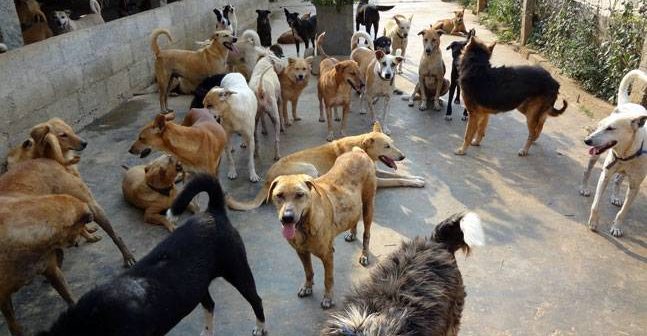India’s recent ban on importing, breeding, and selling specific dog breeds like Pitbulls and Rottweilers, while aiming to curb dog attacks, has sparked outrage. This knee-jerk reaction ignores the root cause – uncontrolled stray dog populations – and unfairly targets responsible owners. Let’s explore why this approach is flawed and examine international examples where similar bans proved ineffective.
Breed Bias vs. Responsible Ownership
The ban assumes inherent danger in certain breeds, neglecting the critical role of responsible pet ownership. Numerous studies show a dog’s temperament is shaped by genetics, socialization, and training. A well-trained and socialized dog, regardless of breed, is far less likely to exhibit aggression.
Furthermore, the ban penalizes responsible breeders who prioritize ethical breeding practices and temperament testing. This diverts focus from unscrupulous breeders who may prioritize profit, potentially creating a black market for banned breeds.
The Real Threat: Untamed Strays
India’s massive stray dog population, estimated at over 30 million, is the real culprit behind most dog bite incidents. These uncontrolled animals often form packs, posing a significant threat. Reports indicate stray dogs are responsible for over 90% of dog bites in India. The current ban offers no solution to this critical issue.
A Missed Opportunity: Responsible Ownership of Powerful Breeds
The ban overlooks the potential of responsible ownership for these breeds. Pitbulls, for instance, are renowned for loyalty and trainability. In the right hands, they can be excellent guard dogs or even therapy animals. Trainers specializing in these breeds highlight their potential benefits. One such trainer argues, “This ban takes away the option of owning a well-trained guard dog from people who genuinely need protection. A responsible owner can have any breed as a pet; demonizing specific breeds is simply unfair.”
The ban also impacts dog trainers specializing in these breeds. These professionals undergo extensive training to understand specific needs and training methods. The ban not only restricts their clientele but discourages aspiring trainers from entering the field, potentially leading to a shortage of qualified professionals.
Learning from International Failures
India isn’t alone in its misguided approach. Several countries have implemented breed-specific bans, only to witness their ineffectiveness. Places like the United Kingdom, which banned Pitbull Terriers in 1991, haven’t seen a significant decrease in dog bite incidents. In fact, the ban arguably shifted the focus away from responsible ownership and towards breed identification, which can be unreliable.
A More Practical Approach
India needs a more comprehensive strategy. Large-scale sterilization and vaccination drives can significantly reduce the stray dog population and mitigate the risk of rabies transmission. Promoting responsible pet ownership through public awareness campaigns and stricter enforcement of leash laws is crucial. Mandatory microchipping of all dogs, regardless of breed, can aid in tracking ownership and holding irresponsible pet owners accountable.
Balanced Action: Safety and Responsible Ownership
Public safety is paramount, but India’s current approach misses the mark. By addressing the stray dog population, promoting responsible ownership across all breeds, and implementing stricter enforcement of existing laws, India can create a safer environment for both humans and canines. This multi-pronged approach can achieve the desired outcome without unfairly targeting responsible dog owners and the potential benefits certain breeds offer.
The Media Maelstrom: Fuelling Public Misconceptions
The media also plays a significant role in shaping public perception of dog breeds. Sensationalized news reports often focus on isolated incidents involving specific breeds, fueling a narrative of inherent danger. This portrayal fails to consider the circumstances surrounding the incident, such as inadequate training or provocation by humans.
This media bias not only misinforms the public but also reinforces breed stereotypes. Responsible dog owners and trainers often find themselves battling these misconceptions. One dog breeder laments, “People see a Pitbull and automatically assume it’s aggressive. They don’t see the countless hours of training and socialization that go into raising a well-behaved dog of any breed.”
Beyond Breed Bans: Alternative Solutions
A more nuanced approach is needed. Consider these alternatives:
-
Breed-Specific Training Programs: Implementing mandatory training programs for owners of certain breeds equips them with the knowledge and skills to handle powerful dogs responsibly.
-
Temperament Testing: While not foolproof, temperament testing can help identify potential behavioral issues in any dog, regardless of breed. This can guide responsible ownership practices and early intervention strategies.
-
Community Education: Public awareness campaigns that emphasize responsible pet ownership, proper training techniques, and safe interaction with dogs of all breeds can significantly reduce bite incidents.
A Call for Collaborative Action
India’s dog bite problem demands a multi-faceted solution. Focusing solely on breed bans not only proves ineffective but also unfairly targets responsible dog owners and the potential benefits certain breeds offer. By addressing the stray dog population, promoting responsible ownership across all breeds, and implementing stricter enforcement of existing laws, India can create a safer environment for humans and canines alike. Collaboration between dog owners, breeders, trainers, and policymakers is crucial to achieve this goal. Only through responsible ownership, effective stray dog management, and public education can India truly turn the tide on dog bite incidents.





